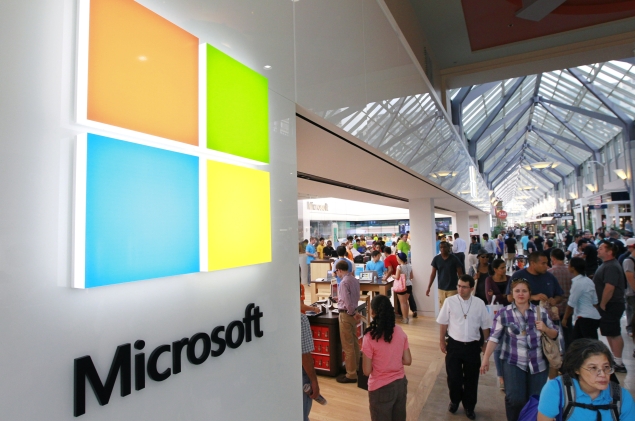- Home
- Internet
- Internet News
- How Microsoft and Symantec brought down the Bamital botnet
How Microsoft and Symantec brought down the Bamital botnet

A Bamital "botnet" raked in an estimated million dollars annually by routing Internet users to websites that generated revenue with bogus online ad "clicks."
"The Bamital botnet defrauded the entire online advertising platform, which is what allows the Internet and many online services to be free," Microsoft said in a blog post.
"What's most concerning is that these cyber-criminals made people go to sites that they never intended to go and took control of the computer away from its owner."
Along with generating fraudulent clicks for which advertisers paid, the hackers sent Internet users to websites that could sneak malicious code onto machines or steal personal information, according to Microsoft.
Microsoft and Symantec research found that during the past two years, more than eight million computers were attacked by Bamital and that the scheme targeted popular search services and browser programs.
Symantec said it has tracked the botnet since late 2009 and joined forces with Microsoft to shut down the operation.
"Bamital is just one of many botnets that utilize click fraud for monetary gain and to foster other cybercrime activities," Symantec said in a blog post.
"Many of the attackers behind these schemes feel they are low risk as many users are unaware that their computers are being used for these activities."
Bamital is part of a family of malicious software designed to highjack search engine results and route Internet users to hacker-controlled servers, which then re-direct traffic to other websites, according to Symantec.
Bamital has been spread with "drive-by downloads" of malicious code at booby-trapped websites and by infected files downloaded from peer-to-peer sharing networks, Symantec said.
Microsoft and Symantec engineers, armed with a federal court order, went to two US data centers on Wednesday and shut down servers believed to be controlling the Bamital botnet.
"Microsoft and Symantec chose to take action against the Bamital botnet to help protect people and advance cloud security for everyone," Microsoft said.
The companies were notifying people whose machines might be infected with the malicious code and a free "power eraser" tool was available online at norton.com/bamital.
Get your daily dose of tech news, reviews, and insights, in under 80 characters on Gadgets 360 Turbo. Connect with fellow tech lovers on our Forum. Follow us on X, Facebook, WhatsApp, Threads and Google News for instant updates. Catch all the action on our YouTube channel.
- Samsung Galaxy Unpacked 2025
- ChatGPT
- Redmi Note 14 Pro+
- iPhone 16
- Apple Vision Pro
- Oneplus 12
- OnePlus Nord CE 3 Lite 5G
- iPhone 13
- Xiaomi 14 Pro
- Oppo Find N3
- Tecno Spark Go (2023)
- Realme V30
- Best Phones Under 25000
- Samsung Galaxy S24 Series
- Cryptocurrency
- iQoo 12
- Samsung Galaxy S24 Ultra
- Giottus
- Samsung Galaxy Z Flip 5
- Apple 'Scary Fast'
- Housefull 5
- GoPro Hero 12 Black Review
- Invincible Season 2
- JioGlass
- HD Ready TV
- Laptop Under 50000
- Smartwatch Under 10000
- Latest Mobile Phones
- Compare Phones
- OPPO A6v 5G
- OPPO A6i+ 5G
- Realme 16 5G
- Redmi Turbo 5
- Redmi Turbo 5 Max
- Moto G77
- Moto G67
- Realme P4 Power 5G
- HP HyperX Omen 15
- Acer Chromebook 311 (2026)
- Lenovo Idea Tab Plus
- Realme Pad 3
- HMD Watch P1
- HMD Watch X1
- Haier H5E Series
- Acerpure Nitro Z Series 100-inch QLED TV
- Asus ROG Ally
- Nintendo Switch Lite
- Haier 1.6 Ton 5 Star Inverter Split AC (HSU19G-MZAID5BN-INV)
- Haier 1.6 Ton 5 Star Inverter Split AC (HSU19G-MZAIM5BN-INV)












